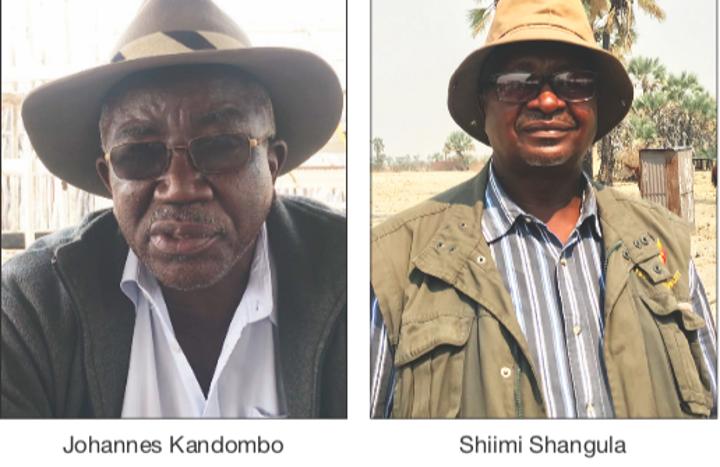Africa-Press – Namibia. ALTHOUGH community courts are disregarded in many communities, these courts have jurisdiction over matters such as customary unions, and delicts such as adultery or the failure to pay lobola, among others.
The director of community courts in the Ministry of Justice, Amalia Nathaniel, says these courts are allowed to adjudicate criminal offences arising from the contravention of customary laws and customs.
In most cases, such offences are limited to theft, common assault, neglecting children, as well as inheritance issues. Nathaniel says there are 37 community courts in the country, which have become the preferred solution for adjudicating some matters due to the exorbitant legal costs of mainstream courts.
“These courts have an impact on the justice system, because of their distinct and prominent characteristics, such as their restorative nature, flexibility, and the fact that they serve and provide access to justice to the majority of Namibians without necessarily looking at their financial status.
“In this regard, the Ministry of Justice and the government pride themselves on recognising these systems of justice that are close to the people – both socially and geographically,” she says.
Community courts also offer the speedy resolution of disputes, which makes them more preferrable. “In this regard, the community courts have substantially reduced the workload of magistrates,” Nathaniel says.
CHALLENGES She says community courts, however, face challenges such as the allowances of community court officials not corresponding with their responsibilities and the cost of living.
“These courts [also] face challenges with the enforcement of writs of execution by the messenger of the magistrate’s court,” she says.
Although community courts try criminal offences, some do not allow journalists to cover proceedings or make notes. Kashona Kamalulu, a senior traditional councillor at the Ondonga Traditional Authority, says this is, however, an oversight on the part of traditional authorities as community courts are open to everyone.
“Journalists are also allowed to attend as long as they are reporting factual information. We are not hiding anything,” he says.
Oukwanyama Traditional Authority senior councillor Ephraim Weyulu confirmed this. He says lawyers are not allowed to speak during proceedings if they are allowed in court.
Ongandjera Traditional Authority senior traditional councillor Shiimi Shangula, however, says no party in a traditional or community court case is allowed to bring their legal representatives to court.
PROCEEDINGS Each case is presided over by three judges trained by the justice ministry, while the court secretary records the proceedings. “Before we start, we ask the complainant and the accused person to take oaths, just like in magistrates’ or high courts.
“A statement from the complainant is read in court and the accused will then be asked to plead,” Weyulu says. Judges require the complainant to bring witnesses.
“He can speak if he gets permission from us, but he is allowed to sit and listen and can also ask questions at the end if he has any questions. We also use devices to record the proceedings.
“If you are not happy with the ruling, you are allowed to appeal within 30 days,” he says.
Chairperson of the Ongandjera Traditional Authority Johannes Kandombo, who is also a community and traditional court judge, says traditional courts deal with land disputes only, while community courts deal with matters like theft, insults, stock theft and other disputes, except for murder, rape, and attempted murder.
These crimes are dealt with by magistrate’s courts. “For murder, only a portion of the matter comes to the community court. It’s called families apologising to each other. There is an amount that the family which transgresses is required to pay.
“When the family comes to us, we are always interested to know if it was intentional or not. We require the person to have documents from the magistrate’s court, which shows whether it was intentional or not.
“We make our decision based on documents from the magistrate’s court,” he says. Kandombo says traditional courts allow complainants to present their case in front of a jury.
After this, the judges then give the accused the opportunity to respond, and they are then questioned. If the complainant has lied, he or she will be punished as prescribed by the Traditional Authorities.
Kandombo says if a person is summoned to a traditional or community court and fails to appear, the traditional authority will contact the ministry which will refer the case to a magistrate’s court. He says the clerk of community and traditional courts sends the ministry monthly reports on court proceedings.
“We preside over about eight cases per week, and 24 per month,” he says. RESPECT Lawyer Richard Metcalfe says community courts should be respected as they are essential in society. He says these courts in essence perform the responsibilities of small claims courts.
“The lack of small claims courts in Namibia is prejudicial to our judicial system and justice in the country because they don’t need magistrates, but usually it would be qualified lawyers who volunteer as presiding officers, and there is no need for formalities, and claimants and litigants to bring the matter to the small claims courts personally, such as with community courts,” he says. He says lawyers are not needed in community courts, and that these courts help other courts to not become overburdened.
For More News And Analysis About Namibia Follow Africa-Press






